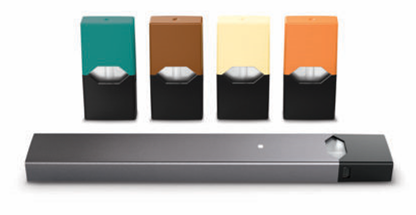High school graduation would require fewer state tests under Senate plan – By Patrick O’Donnell, The Cleveland Plain Dealer
Graduating from high school will no longer require students to earn good scores on numerous state tests under a plan the Ohio Senate passed today.
Students will still need strong scores on two tests to show competency in English and math under the new plan. But they will no longer have to do well on six other state tests, as the state requires now.
They also will have to earn at least two of 12 diploma “seals” the state would offer, each designed to show more advanced skills in areas students choose, like the arts, technology, citizenship or college- or career-readiness.
These state requirements, like the test score hurdles they replace, are in addition to the traditional diploma requirements of earning credits by passing classes in multiple subjects. The state has added extra requirements in recent years, in hopes of making diplomas mean more to employers and to prove readiness for college.

How much money are Illinois colleges getting in the new budget? ‘It’s definitely good news for colleges and universities.’ – By Dawn Rhodes, The Chicago Tribune
Illinois’ public universities and community colleges are getting an increase in state funding not seen in nearly three decades.
The state budget Gov. J.B. Pritzker signed June 5 raises higher education general funding by $154 million or 8.2 percent, the largest year-over-year percentage jump since 1990, according to the Illinois Board of Higher Education.
The budget includes $1.16 billion to cover day-to-day operations at the 12 public universities. That is a 5 percent increase over last year, giving the schools an additional $52.8 million.
Community colleges will receive a 12.3 percent increase from the 2018-19 school year, up $33.2 million for a total budget of $303 million.

Houston ISD going all-in on wraparound services – By Shawna De La Rosa, Education Dive
Houston Independent School District is launching a whole-child program that will put 300 staff members in place by 2022 to assist many of its 209,000 students who struggle with hunger, homelessness, deportation fears, and other social and emotional concerns, Houston Chronicle reports.
About 110 of the district's schools already have employees in these roles, connecting students who need support with community providers, finding resources for families, and monitoring progress through a software platform.
The initiative mirrors a national trend toward focusing on making sure all of a student's basics needs are met, though its expansion was slowed this spring due to implementation issues, a high turnover rate among the specialists, and pushback from some of the district’s employees.

Fairbury schools to test for nicotine in high school students involved in extracurricular activities – By Margaret Reist, The Lincoln Journal Star
The dramatic increase in vaping and e-cigarettes convinced Fairbury Public Schools officials they should test students for nicotine as part of the random drug tests given to students involved in extracurricular activities.
“Vaping and smoking in our view is reaching epidemic proportions,” said Fairbury Superintendent Stephen Grizzle. “It’s just a way we can deter kids from potentially being addicted to nicotine. Since smoking and using vaping products are against our policies, it makes sense to include that.”
Fairbury is one of a number of school districts in Nebraska that require random drug testing for students who want to participate in everything from athletics to Future Business Leaders of America to marching band.
The Fairbury district, about 50 miles southwest of Lincoln, is one of the first to include nicotine among the substances tested for.












